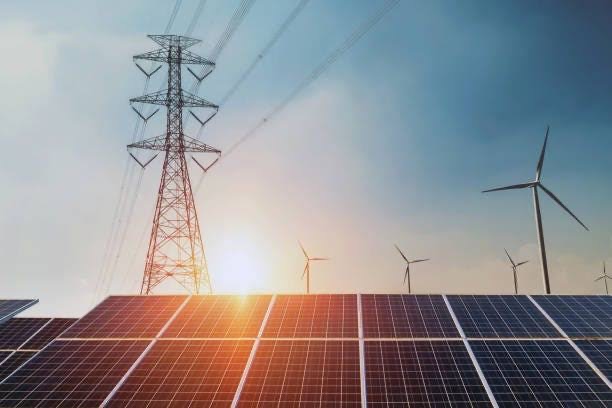To address the nation’s significant energy deficit, the Nigerian Electricity Regulatory Commission (NERC) plans to add 5,000 MW of renewable energy to the country’s energy mix by 2030.
The power generation improvement plan was unveiled at the weekend by NERC’s Head of Renewable Energy/Corporate Planning and Strategy, Mr. Jonathan Okoronkwo, at a webinar organized by the Major Energies Marketers Association of Nigeria (MEMAN) with the topic “Energy Transition through Solar Energy.
He explained that under the National Renewable Energy Action Plan (NREAP), aims to diversify Nigeria’s energy mix by increasing the contribution of renewable energy sources to the national grid.
Okoronkwo added that the action plan sets a target of 30 percent renewable energy in Nigeria’s energy mix by 2030, with specific milestones for solar, wind, biomass, and hydroelectric power. He stressed that solar energy, particularly large-scale solar projects, is a significant focus due to Nigeria’s high solar insolation. However, he said, the entry barrier remained a major setback for would-be solar energy users due to the initial cost. But to reverse this constraint, he said, the government should offer tax breaks, low-interest loans, and grants to reduce the initial capital costs associated with solar energy projects.
He added that the government can provide risk-sharing mechanisms to encourage private sector investment in solar projects. ‘‘Import duty waivers on solar thermal equipment and components can significantly reduce project costs. Waiving land acquisition fees and providing expedited environmental clearances can fast-track solar energy project development,’’. In her keynote address, Engr. Abiola Kosegbe, Permanent Secretary of the Lagos State Ministry of Energy and Mineral Resources, stressed the critical role of collaboration among various stakeholders, including government agencies, in advocating for policies that support the growth of Nigeria’s solar energy sector.
She emphasised the significant potential of renewable energy sources, particularly solar, wind, and hydro, to meet Nigeria’s energy demands while decreasing dependence on fossil fuels. Kosegbe noted that Lagos State has set an ambitious goal to generate 50% of its electricity from renewable sources by 2030, with programs like “Solar for All” being key to achieving this objective. She also highlighted the necessity for ongoing investment in infrastructure, favorable policies, and continued collaboration to drive the growth of renewable energy in Lagos and across Nigeria

